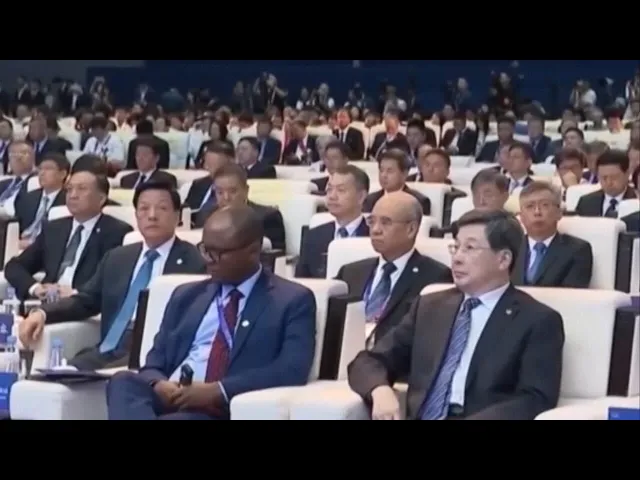AI race between Washington, Beijing heats up

Washington vs Beijing: the AI supremacy contest
In the shadows of diplomatic tensions and global trade disputes, a more consequential battle is quietly intensifying—the race for artificial intelligence dominance between the United States and China. The recent Bloomberg report by Richard Turrin reveals how this technological competition isn't merely about innovation bragging rights but represents a fundamental struggle that will shape economic and military power for decades to come. As both nations pour unprecedented resources into AI development, the implications stretch far beyond Silicon Valley and Shenzhen.
Key Points
-
Strategic asymmetry exists – While the US leads in foundational AI research and possesses more powerful computing infrastructure, China excels in practical AI implementation and adoption, particularly in areas like facial recognition, surveillance technologies, and digital payment systems.
-
China's AI advantages stem from different values – The Chinese approach to data privacy and government coordination allows for massive data collection and implementation advantages that Western democracies cannot match due to fundamental differences in social contracts and privacy expectations.
-
US restrictions are slowing but not stopping China – American export controls on advanced semiconductors and AI technologies have created obstacles for Chinese development but may ultimately push China toward greater self-sufficiency while potentially fracturing the global technology ecosystem.
-
Different application priorities reveal strategic goals – China focuses heavily on surveillance capabilities and industrial applications while the US emphasizes consumer applications and military technology, reflecting their distinct national priorities and governance models.
The Most Critical Insight: Technological Decoupling Is Accelerating
What makes Turrin's analysis particularly valuable is his clear-eyed assessment of how the AI race is accelerating technological decoupling between the world's two largest economies. This isn't merely a temporary policy position but represents a fundamental strategic shift with profound implications. As the US restricts China's access to advanced semiconductors and China responds by developing indigenous alternatives, we're witnessing the formation of two distinct technological ecosystems that may become increasingly incompatible.
This matters immensely because technological standards have historically been global—allowing for efficiencies of scale, interoperability, and shared innovation. The creation of separate US and Chinese AI spheres could significantly slow global technological progress while increasing costs for businesses that must navigate both systems. For multinational corporations, this bifurcation means potentially maintaining duplicate technology stacks, compliance systems, and development teams—a costly proposition
Recent Videos
How To Earn MONEY With Images (No Bullsh*t)
Smart earnings from your image collection In today's digital economy, passive income streams have become increasingly accessible to creators with various skill sets. A recent YouTube video cuts through the hype to explore legitimate ways photographers, designers, and even casual smartphone users can monetize their image collections. The strategies outlined don't rely on unrealistic promises or complicated schemes—instead, they focus on established marketplaces with proven revenue potential for image creators. Key Points Stock photography platforms like Shutterstock, Adobe Stock, and Getty Images remain viable income sources when you understand their specific requirements and optimize your submissions accordingly. Specialized marketplaces focusing...
Oct 3, 2025New SHAPE SHIFTING AI Robot Is Freaking People Out
Liquid robots will change everything In the quiet labs of Carnegie Mellon University, scientists have created something that feels plucked from science fiction—a magnetic slime robot that can transform between liquid and solid states, slipping through tight spaces before reassembling on the other side. This technology, showcased in a recent YouTube video, represents a significant leap beyond traditional robotics into a realm where machines mimic not just animal movements, but their fundamental physical properties. While the internet might be buzzing with dystopian concerns about "shape-shifting terminators," the reality offers far more promising applications that could revolutionize medicine, rescue operations, and...
Oct 3, 2025How To Do Homeless AI Tiktok Trend (Tiktok Homeless AI Tutorial)
AI homeless trend raises ethical concerns In an era where social media trends evolve faster than we can comprehend them, TikTok's "homeless AI" trend has sparked both creative engagement and serious ethical questions. The trend, which involves using AI to transform ordinary photos into images depicting homelessness, has rapidly gained traction across the platform, with creators eagerly jumping on board to showcase their digital transformations. While the technical process is relatively straightforward, the implications of digitally "becoming homeless" for entertainment deserve careful consideration. The video tutorial provides a step-by-step guide on creating these AI-generated images, explaining how users can transform...
